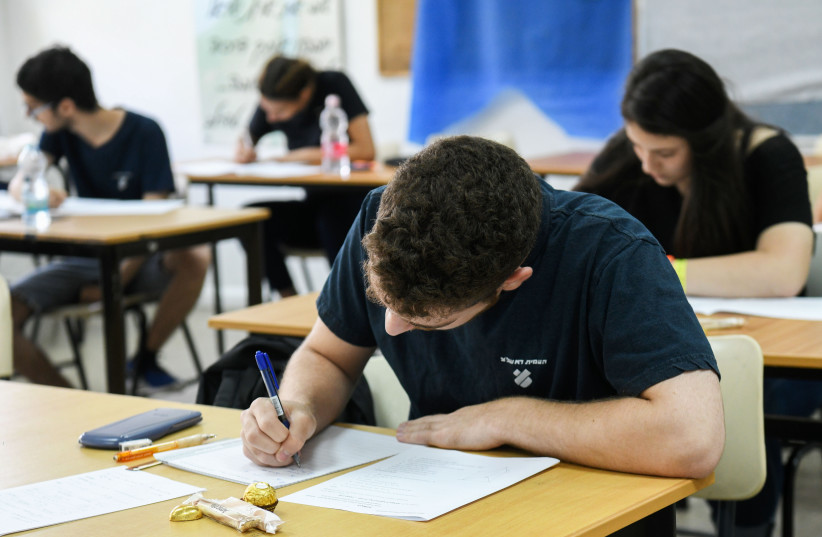Yet another teacher who stood in front of his class – a class on critical thinking – to lead a discussion has been summoned to a disciplinary hearing. The topic: current events – the Levin judicial overhaul and its ramifications. Even though the teacher did just what his educational role calls for and was in compliance with the goals of the State Education Law, he was called in for a pre-dismissal hearing on the grounds that the lesson had aroused discomfort.
This is not the first time that teachers in the state school system have found themselves under attack in the public arena and on social networks for trying to deal with complex and controversial issues. The charge against them is always the same: You must not bring politics into the classroom. You must remain apolitical.
“You stand at the gate, protecting children in the ethical, nonpartisan and balanced bubble that they need now more than ever.”
Assaf Tselal
Last week, the director-general of the Education Ministry, Assaf Tselal, sent a letter to teachers: “You stand at the gate, protecting children in the ethical, nonpartisan and balanced bubble that they need now more than ever.” Creating such a bubble is itself political. Additionally, no student in Israel can or should have to live in isolation from what is happening in the surrounding environment.
Israeli schools must not function as a bubble
A school that functions as a bubble is failing in its important educational function. The answer to the question of why for the past 20 years the education system has been stagnating in all the international indices is not the number of hours devoted to mathematics or English but the absurd attitude which perceives the school as a bubble rather than as a living and dynamic arena of real life, with all that this implies.
How can one think that nonpartisanship is some neutral and balanced framework when it is actually a cover for the political viewpoint that is dominant at a specific point in time? Can students who enter the classroom and live in the real world with all its turbulence and storms cut themselves off from it?

Schools are the only place with the potential to present a turbulent reality using pedagogical tools with sensitivity and responsibility, offering facts and figures, conveying information, thinking about different perspectives and viewpoints, and developing tools for independent and critical thought, which is essential for human development.
HOWEVER, IN order to do this, it must be defined as a high priority in teacher training programs and even more importantly, there must be an Education Ministry that understands that this is what the 21st century needs: citizens capable of independent thinking with the capacity to deal with a world beset by many different types of crises and the ability to live in a multicultural society torn apart by disagreements.
But as in the case of teacher Amir Kliger, who teaches critical thinking, it turns out that “critical thinking” is a fine name for the subject but that actually implementing it in the classroom is seen as political and a source of discomfort. The education system of the new millennium is subject to a regime that openly and covertly stifles teachers who want to engage in one of their most important functions: teaching. This means teaching pupils how to think independently and helping the next generation of citizens understand how they can live in a multicultural and democratic society.
The new government did not invent these measures. Teachers in the state education system have long been exposed to the silencing and exclusion of complex ideas that do not coincide with the mainstream approach – in our case, the “bubble” mentioned by Tselal. This is in addition to the increased politicization of the liberal values that are an inseparable piece of the principles of Israel’s Declaration of Independence and the goals enunciated in the State Education Law.
The current government has brought this process to a record high. It provides a tailwind to the more severe silencing and paralysis of teachers in the state system, while simultaneously reinforcing the partisan links that exist in the state religious stream and ultra-Orthodox institutions, where the expression of political ideas, values and viewpoints causes no discomfort and is even encouraged and backed up by receipt of resources.
If the teachers in the state system do not address current events and introduce their pupils to diverse worldviews, and invite them to investigate and understand the meanings of current processes that will shape their lives as citizens, Israeli schools will continue to exist as a bubble. Any connection between that bubble and the real world in which people live and think will be purely coincidental.
The writer is the director of the Program on Education for Democracy at the Israel Democracy Institute.
